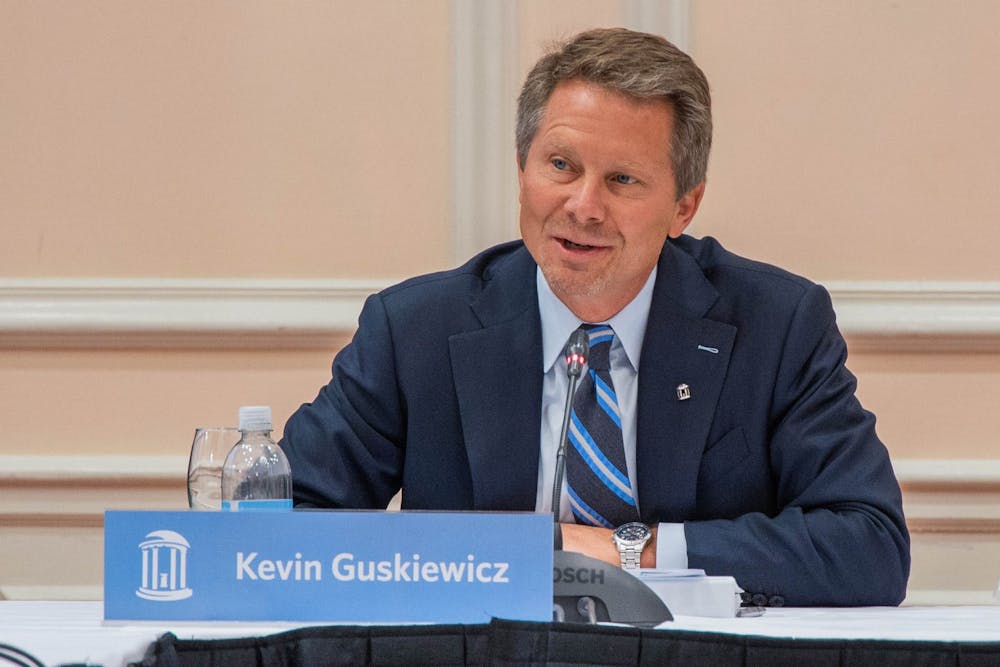UNC-Chapel Hill’s chapter of the American Association of University Professors is calling on Chancellor Kevin Guskiewicz — and other UNC administrators who have contributed to “UNC’s pattern of institutional dishonesty” — to resign.
“The serial dishonesty displayed by the chancellor and his associates regarding the most sensitive and important matters confronting the University in recent years has eroded our confidence in UNC's leadership,” the statement, posted Thursday, said.
The statement follows the revelation that Clayton Somers, vice chancellor for public affairs at UNC, took part in negotiating the Silent Sam settlement with the Sons of Confederate Veterans, in apparent contradiction to Guskiewicz’s earlier assertions that UNC administrators were not involved in the deal.
Guskiewicz said at a December 2019 Faculty Council meeting that he had no involvement in Board of Governors' negotiations. At the same meeting a group of students marched onto the floor and chanted "reparations, retract or resign" when Guskiewicz was introduced.
Michael Palm, the president of UNC’s AAUP chapter and a professor of communication, said this action around the settlement is on its own “outrageous." But Palm said this statement was motivated by more — a “pattern of lying that can’t continue" from UNC's administration.
The statement cites a series of breaches of trust by UNC’s administration, including the new findings regarding the SCV settlement, the timing of the release of the report of Clery Act violations and the decision not to publicize the recommendations of the Orange County Health Department about the fall semester.
“I think our hope is that it might galvanize the UNC community’s refusal to accept this behavior from our administrators and it might help generate some accountability from Guskiewicz to the students, faculty and staff at UNC as opposed to the BOG,” Palm said.
Guskiewicz said in a 2019 Campus Safety Commission meeting that the University was not able to release the Department of Education's report on the Clery Act until the legal process had been resolved. He sent a campus message about the OCHD recommendations after news outlets reported the contents of the health director's letter.
Vice Chancellor for Communications Joel Curran said in an email that the University is aware of the statement from "a small group of faculty about matters that we have addressed publicly many times."




